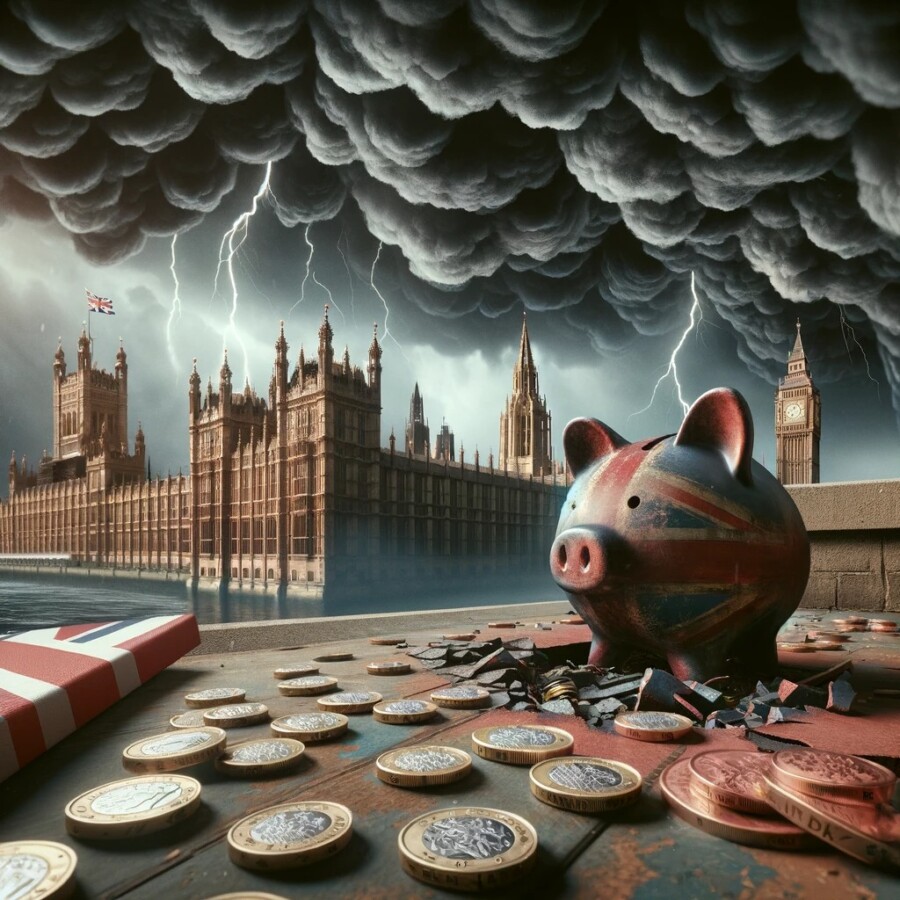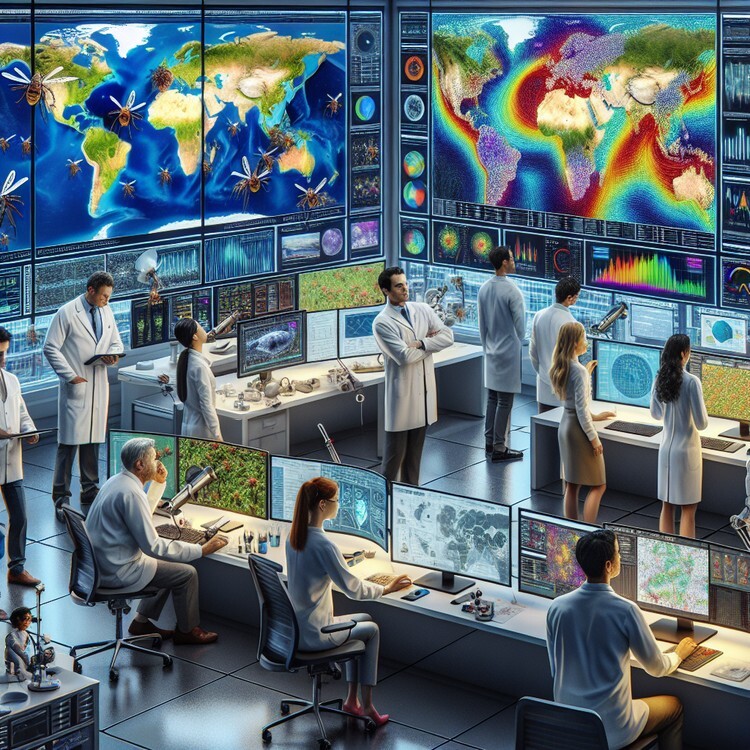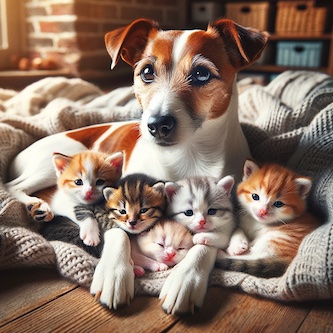The results of the 2024 U.S. presidential election have caused a lot of tension in the country and around the world. This situation has led to different opinions about what it means for the future. Because of this division, the Merriam-Webster dictionary has picked “polarization” as its word of the year. Peter Sokolowski, the editor at Merriam-Webster, explained that polarization means a strong division that pushes people to extreme opinions instead of finding common ground.
The election showed just how divided people are, with many voters seeing the other candidate as a real danger to the country. A survey by AP VoteCast, which asked over 120,000 voters, found that about 80% of those who voted for Kamala Harris were worried that Donald Trump’s ideas were too extreme. On the other hand, around 70% of Trump supporters thought Harris’s views were too radical. This big difference shows how deep the divisions are among American voters.
Merriam-Webster’s choice of “polarization” is not just about politics; it also points to bigger problems in society. The word is used to describe major disagreements in many areas, like pop culture and technology. For example, arguments about celebrities, such as Taylor Swift’s use of her private jet, or fights between musicians, are also seen as polarizing. This shows that polarization is a widespread issue that affects many parts of our lives today.
Interestingly, the word “polarization” has been around since the early 1800s, making it a relatively new term in English. Sokolowski mentioned that while people often think of polarization in political discussions, it also applies to other areas of life. He stressed that dictionaries aim to give clear definitions, especially now when there is so much misinformation. By choosing “polarization” as the word of the year, Merriam-Webster highlights the need to recognize the divisions in society. Other words like “demure,” “fortnight,” and “totality” have also gained attention in 2024, showing how language changes with current events and people’s interests.
Original news source: ‘Polarization’ is Merriam-Webster’s 2024 word of the year (AP News)
🎧 Listen:
Slow
Normal
Fast
📖 Vocabulary:
| 1 | polarization | A strong separation that pushes people to opposite sides |
| 2 | division | A split or separation between people or groups |
| 3 | extreme | Very far from the usual or average |
| 4 | radical | Very different from what is usual or traditional |
| 5 | disagreements | Arguments or differences in opinion |
| 6 | pop culture | Modern popular culture, especially as it relates to entertainment |
| 7 | technology | The use of science and machines to solve problems |
| 8 | celebrities | Famous people, especially in entertainment |
| 9 | private | Not meant to be shared with others; personal |
| 10 | widespread | Found or happening in many places or among many people |
| 11 | misinformation | False or incorrect information spread to deceive people |
| 12 | recognize | To identify or be aware of something |
| 13 | demure | Shy, modest, or reserved in behavior |
| 14 | fortnight | A period of two weeks |
| 15 | totality | The whole or complete amount of something |
Group or Classroom Activities
Warm-up Activities:
– CHARADES
Instructions: Students will act out the word “polarization” without speaking, while their classmates guess the word. Encourage them to think creatively about how to convey the meaning of the word through gestures and facial expressions.
– OPINION POLL
Instructions: Divide the class into small groups and have them discuss their opinions on the concept of polarization in society. Each group will create a short poll with questions related to polarization (e.g., “Do you think polarization is increasing in your country?”). Afterward, groups will share their findings with the class.
– MIND MAP
Instructions: In pairs, students will create a mind map related to the word “polarization.” They will brainstorm and connect various ideas associated with the term, such as politics, social media, culture, and technology. Each pair will present their mind map to the class.
– HEADLINE CREATION
Instructions: Students will work individually or in pairs to come up with a catchy headline related to the article’s theme of polarization. After they create their headlines, they will share them with the class, and the class will vote on the most engaging one.
– SPEED SUMMARIZING
Instructions: Students will be given one minute to summarize the article’s main points to a partner. After the first round, they will switch partners and summarize again, focusing on different aspects of the article. This will help them practice concise communication and reinforce their understanding of the content.
🤔 Comprehension Questions:
1. What event led to the selection of “polarization” as Merriam-Webster’s word of the year?
2. How did the election results reflect the division among American voters?
3. What percentage of Kamala Harris supporters were concerned about Donald Trump’s ideas, according to the survey?
4. In what other areas, besides politics, is the term “polarization” used to describe disagreements?
5. Why does Peter Sokolowski believe it is important for dictionaries to provide clear definitions?
6. What does the term “polarization” imply about people’s opinions in society?
7. How has the word “polarization” changed in usage over time since it was first introduced in the early 1800s?
8. What does the article suggest about the relationship between language and current events?
Go to answers ⇩
🎧✍️ Listen and Fill in the Gaps:
The results of the 2024 U.S. (1)______ (2)______ have caused a lot of tension in the country and around the world. This situation has led to different opinions about what it (3)______ for the future. Because of this division, the Merriam-Webster dictionary has picked “polarization” as its word of the year. Peter Sokolowski, the editor at Merriam-Webster, explained that polarization means a strong division that pushes (4)______ to extreme opinions instead of finding common ground.
The election showed just how divided people are, with many voters seeing the other candidate as a real danger to the country. A survey by AP VoteCast, which (5)______ over 120,000 voters, found that about 80% of those who voted for Kamala (6)______ were worried that Donald Trump’s ideas were too (7)______. On the other hand, around 70% of Trump supporters thought Harris’s (8)______ were too radical. This big difference shows how deep the divisions are among American voters.
Merriam-Webster’s choice of “polarization” is not just about politics; it also points to bigger problems in society. The word is used to describe major disagreements in many areas, like pop culture and technology. For example, arguments about celebrities, such as Taylor Swift’s use of her private jet, or fights between musicians, are also seen as polarizing. This (9)______ that polarization is a widespread (10)______ that affects many parts of our lives (11)______.
Interestingly, the word “polarization” has been around since the early 1800s, making it a relatively new term in English. Sokolowski (12)______ that while people often think of polarization in (13)______ discussions, it also applies to other areas of life. He stressed that dictionaries aim to give clear definitions, especially now when there is so much misinformation. By choosing “polarization” as the word of the year, Merriam-Webster (14)______ the need to recognize the divisions in society. Other words like “demure,” “fortnight,” and “totality” have also gained (15)______ in 2024, showing how (16)______ changes with current events and people’s interests.
Go to answers ⇩
💬 Discussion Questions:
Students can ask a partner these questions, or discuss them as a group.
1. What is your opinion on the idea of polarization in society?
2. How would you feel if you had to discuss politics with someone who has very different opinions from yours?
3. Do you think it’s possible for people with extreme views to find common ground? Why or why not?
4. Have you ever experienced a situation where people were very divided over an issue? What happened?
5. What is a topic that you think causes a lot of polarization among your friends or family?
6. Do you like discussing political issues with others? Why or why not?
7. How do you think social media affects polarization in today’s society?
8. Do you think celebrities should be involved in political discussions? Why or why not?
9. How would you feel if your favorite celebrity took a strong political stance that you disagreed with?
10. What is a way that people can try to bridge the gap between polarized opinions?
11. Do you think language plays a big role in how we understand political issues? Why?
12. How would you feel if you had to choose between two candidates you didn’t like in an election?
13. Do you think young people today are more or less polarized than previous generations? Why?
14. What is a recent event that you think has caused a lot of division in society?
15. Do you think it’s important to recognize and talk about polarization? Why or why not?
Individual Activities
📖💭 Vocabulary Meanings:
Match each word to its meaning.
Words:
1. polarization
2. division
3. extreme
4. radical
5. disagreements
6. pop culture
7. technology
8. celebrities
9. private
10. widespread
11. misinformation
12. recognize
13. demure
14. fortnight
15. totality
Meanings:
(A) Not meant to be shared with others; personal
(B) Arguments or differences in opinion
(C) Very different from what is usual or traditional
(D) Found or happening in many places or among many people
(E) A split or separation between people or groups
(F) Very far from the usual or average
(G) Modern popular culture, especially as it relates to entertainment
(H) A period of two weeks
(I) Shy, modest, or reserved in behavior
(J) The whole or complete amount of something
(K) Famous people, especially in entertainment
(L) The use of science and machines to solve problems
(M) To identify or be aware of something
(N) False or incorrect information spread to deceive people
(O) A strong separation that pushes people to opposite sides
Go to answers ⇩
🔡 Multiple Choice Questions:
1. What word did Merriam-Webster choose as its word of the year for 2024?
(a) Division
(b) Election
(c) Polarization
(d) Democracy
2. According to Peter Sokolowski, what does “polarization” mean?
(a) A peaceful agreement between different groups
(b) A strong division that pushes people to extreme opinions
(c) A method of voting
(d) A type of political party
3. What percentage of Kamala Harris voters were worried about Donald Trump’s ideas?
(a) About 50%
(b) About 80%
(c) About 70%
(d) About 90%
4. What percentage of Trump supporters thought Kamala Harris’s views were too radical?
(a) Around 70%
(b) Around 60%
(c) Around 50%
(d) Around 80%
5. Besides politics, in what other areas is polarization observed?
(a) Sports and education
(b) Science and history
(c) Pop culture and technology
(d) Travel and food
6. When did the word “polarization” first appear in the English language?
(a) Late 1900s
(b) Early 1900s
(c) Late 1800s
(d) Early 1800s
7. What does Sokolowski believe dictionaries should provide, especially in today’s world?
(a) Clear definitions
(b) Political opinions
(c) Historical context
(d) Personal stories
8. Which other words gained attention in 2024, according to the article?
(a) Freedom, justice, and equality
(b) Technology, culture, and society
(c) Election, candidate, and vote
(d) Demure, fortnight, and totality
Go to answers ⇩
🕵️ True or False Questions:
1. Conversely, around 70% of Trump supporters believed that Kamala Harris’s views were too mainstream.
2. A survey revealed that 80% of Kamala Harris voters viewed Donald Trump’s ideas as too extreme.
3. The 2024 U.S. presidential election results have created minimal tension both in the country and globally.
4. Merriam-Webster’s choice of “polarization” emphasizes the importance of acknowledging societal divisions amidst widespread misinformation.
5. Merriam-Webster chose “polarization” as its word of the year to reflect the current state of unity in society.
6. The term “polarization” has been in use since the early 1800s, making it a relatively old word in the English language.
7. The concept of polarization extends beyond politics, affecting areas like pop culture and technology.
8. The editor of Merriam-Webster, Peter Sokolowski, defined polarization as a weak division that leads people to moderate opinions.
Go to answers ⇩
📝 Write a Summary:
Write a summary of this news article in two sentences.
Check your writing now with the best free AI for English writing!
Writing Questions:
Answer the following questions. Write as much as you can for each answer.
Check your answers with our free English writing assistant!
1. What does the word “polarization” mean according to the Merriam-Webster dictionary?
2. How did the 2024 U.S. presidential election show the divisions among American voters?
3. In what other areas of life, besides politics, is polarization seen according to the article?
4. Why is it important for dictionaries to provide clear definitions, especially during times of misinformation?
5. What does the choice of “polarization” as the word of the year suggest about current issues in society?
✅ Answers
🤔✅ Comprehension Question Answers:
1. What event led to the selection of “polarization” as Merriam-Webster’s word of the year?
The 2024 U.S. presidential election caused a lot of tension and division in the country, leading to the selection of “polarization” as the word of the year.
2. How did the election results reflect the division among American voters?
The election results showed that many voters viewed the opposing candidate as a serious threat, highlighting a strong divide in opinions.
3. What percentage of Kamala Harris supporters were concerned about Donald Trump’s ideas, according to the survey?
About 80% of Kamala Harris supporters were worried that Donald Trump’s ideas were too extreme.
4. In what other areas, besides politics, is the term “polarization” used to describe disagreements?
The term “polarization” is also used to describe major disagreements in areas like pop culture and technology, such as arguments about celebrities and music feuds.
5. Why does Peter Sokolowski believe it is important for dictionaries to provide clear definitions?
Peter Sokolowski believes it’s important for dictionaries to provide clear definitions to help people understand terms accurately, especially during times of misinformation.
6. What does the term “polarization” imply about people’s opinions in society?
The term “polarization” implies that people’s opinions are becoming more extreme and divided, making it harder to find common ground.
7. How has the word “polarization” changed in usage over time since it was first introduced in the early 1800s?
While “polarization” has been around since the early 1800s, it has become more commonly associated with political discussions and societal divisions in recent times.
8. What does the article suggest about the relationship between language and current events?
The article suggests that language evolves with current events and people’s interests, as seen in the selection of words like “polarization” that reflect ongoing societal issues.
Go back to questions ⇧
🎧✍️✅ Listen and Fill in the Gaps Answers:
(1) presidential
(2) election
(3) means
(4) people
(5) asked
(6) Harris
(7) extreme
(8) views
(9) shows
(10) issue
(11) today
(12) mentioned
(13) political
(14) highlights
(15) attention
(16) language
Go back to questions ⇧
📖💭✅ Vocabulary Meanings Answers:
1. polarization
Answer: (O) A strong separation that pushes people to opposite sides
2. division
Answer: (E) A split or separation between people or groups
3. extreme
Answer: (F) Very far from the usual or average
4. radical
Answer: (C) Very different from what is usual or traditional
5. disagreements
Answer: (B) Arguments or differences in opinion
6. pop culture
Answer: (G) Modern popular culture, especially as it relates to entertainment
7. technology
Answer: (L) The use of science and machines to solve problems
8. celebrities
Answer: (K) Famous people, especially in entertainment
9. private
Answer: (A) Not meant to be shared with others; personal
10. widespread
Answer: (D) Found or happening in many places or among many people
11. misinformation
Answer: (N) False or incorrect information spread to deceive people
12. recognize
Answer: (M) To identify or be aware of something
13. demure
Answer: (I) Shy, modest, or reserved in behavior
14. fortnight
Answer: (H) A period of two weeks
15. totality
Answer: (J) The whole or complete amount of something
Go back to questions ⇧
🔡✅ Multiple Choice Answers:
1. What word did Merriam-Webster choose as its word of the year for 2024?
Answer: (c) Polarization
2. According to Peter Sokolowski, what does “polarization” mean?
Answer: (b) A strong division that pushes people to extreme opinions
3. What percentage of Kamala Harris voters were worried about Donald Trump’s ideas?
Answer: (b) About 80%
4. What percentage of Trump supporters thought Kamala Harris’s views were too radical?
Answer: (a) Around 70%
5. Besides politics, in what other areas is polarization observed?
Answer: (c) Pop culture and technology
6. When did the word “polarization” first appear in the English language?
Answer: (d) Early 1800s
7. What does Sokolowski believe dictionaries should provide, especially in today’s world?
Answer: (a) Clear definitions
8. Which other words gained attention in 2024, according to the article?
Answer: (d) Demure, fortnight, and totality
Go back to questions ⇧
🕵️✅ True or False Answers:
1. Conversely, around 70% of Trump supporters believed that Kamala Harris’s views were too mainstream. (Answer: False)
2. A survey revealed that 80% of Kamala Harris voters viewed Donald Trump’s ideas as too extreme. (Answer: True)
3. The 2024 U.S. presidential election results have created minimal tension both in the country and globally. (Answer: False)
4. Merriam-Webster’s choice of “polarization” emphasizes the importance of acknowledging societal divisions amidst widespread misinformation. (Answer: True)
5. Merriam-Webster chose “polarization” as its word of the year to reflect the current state of unity in society. (Answer: False)
6. The term “polarization” has been in use since the early 1800s, making it a relatively old word in the English language. (Answer: True)
7. The concept of polarization extends beyond politics, affecting areas like pop culture and technology. (Answer: True)
8. The editor of Merriam-Webster, Peter Sokolowski, defined polarization as a weak division that leads people to moderate opinions. (Answer: False)
Go back to questions ⇧















